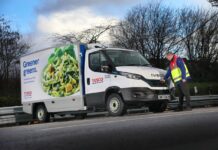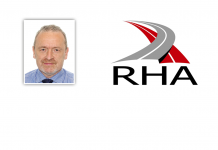Recently I was invited onto BBC radio to discuss Oxford Council’s plan to ban to create what would be the world’s first zero-emissions zone. Under the plan which is now out for consultation the ban would be introduced in phases but would start with banning non zero-emission taxis, cars, LGV’s and buses from 6 streets in the city centre in 2020. The plan from then on will be to expand to cover the whole city centre and encompass all vehicle types by 2035.
John Tanner of Oxford city council was quoted in another publication as saying, “Toxic and illegal air pollution in the city centre is damaging the health of Oxford’s residents. A step change is urgently needed; the zero-emissions zone is that step change.”
No one can put a price on health and there is little doubt that LEZ’s across the UK are coming but when the interviewer asked me what would happen if this plan were to be rolled out to cities in Northern Ireland and Scotland the answer was fairly simple. Despite the road haulage industry having a reputation of being early adopters of new technologies in this case the technology simply doesn’t exist to adopt.
I would re-iterate that health should come before any other considerations and the most toxic vehicles should be kept out of the areas with the worst toxic air pollution records. At the time of writing the new “T-Charge” is going live in London and will be paid in addition to the congestion charge and in the same areas of operation, but there should also be a level of pragmatism when looking at other cities across the UK that have different levels of toxic air issues that that faced in Central London.
The Belfast Air Quality Action Plan 2015-2020 shows that recordings from the four Air Quality Management Areas (AQMA’s) at the Westlink Corridor, Ormeau Road, Upper Newtonards Road and Cromac Street/Short Strand show that measures already being taken have reduced NO2 concentrations in all areas and for Upper Newtonards Road it is to the point that it is now in compliance with the air quality objectives set out in the plan.
Shops will always need deliveries and people will always need supplies, as I am sure the good people of Oxford will soon attest to and there is no doubt that things must change, but if we go back to the discussions on the recent radio interview then my main point to the interviewer was that any “step change” must be commensurate with the problem faced in each city. A “one size fits all” approach will not work.
Our industry is constantly faced with more and more red tape and the associated cost that comes with that red tape. TfL have acknowledged that Euro 6 engines emit “ultra- low” emissions although there are still a good number trucks running Euro 5 engines these numbers are reducing year on year. If progress continues along current lines then indications highlighted in the Belfast Air Quality Action Plan are that Ormeau Road, Westlink and Cromac/Short Strand will join Upper Newtonards Road as being compliant with the air quality objectives before 2020.
Make no mistake, there is a real need to take the necessary steps to ensure air quality is improved in our city centres and that the nation’s health is of paramount importance but there are a number of measures that can be looked at before imposing blanket bans. They can range from traffic light sequencing to investment in park and ride facilities and scrappage schemes.
Oxford has already won £500k of government funding to install charging points for electric taxi’s and £800k to install charging points for residents but one newspaper suggested a further £7million investment would be required for infrastructure and the installation of CCTV. Changes must come but these changes should be commensurate with the problem at hand particularly with the levels of investment required.
DID YOU KNOW?
Did you know that over 2,100 hauliers have signed up to the RHA action against the truck cartel, with a further 700 hauliers having registered their interest? If you haven’t already joined the claim, then go to www.truckcartellegalaction.com or call the team on 08450 30 50 30.















